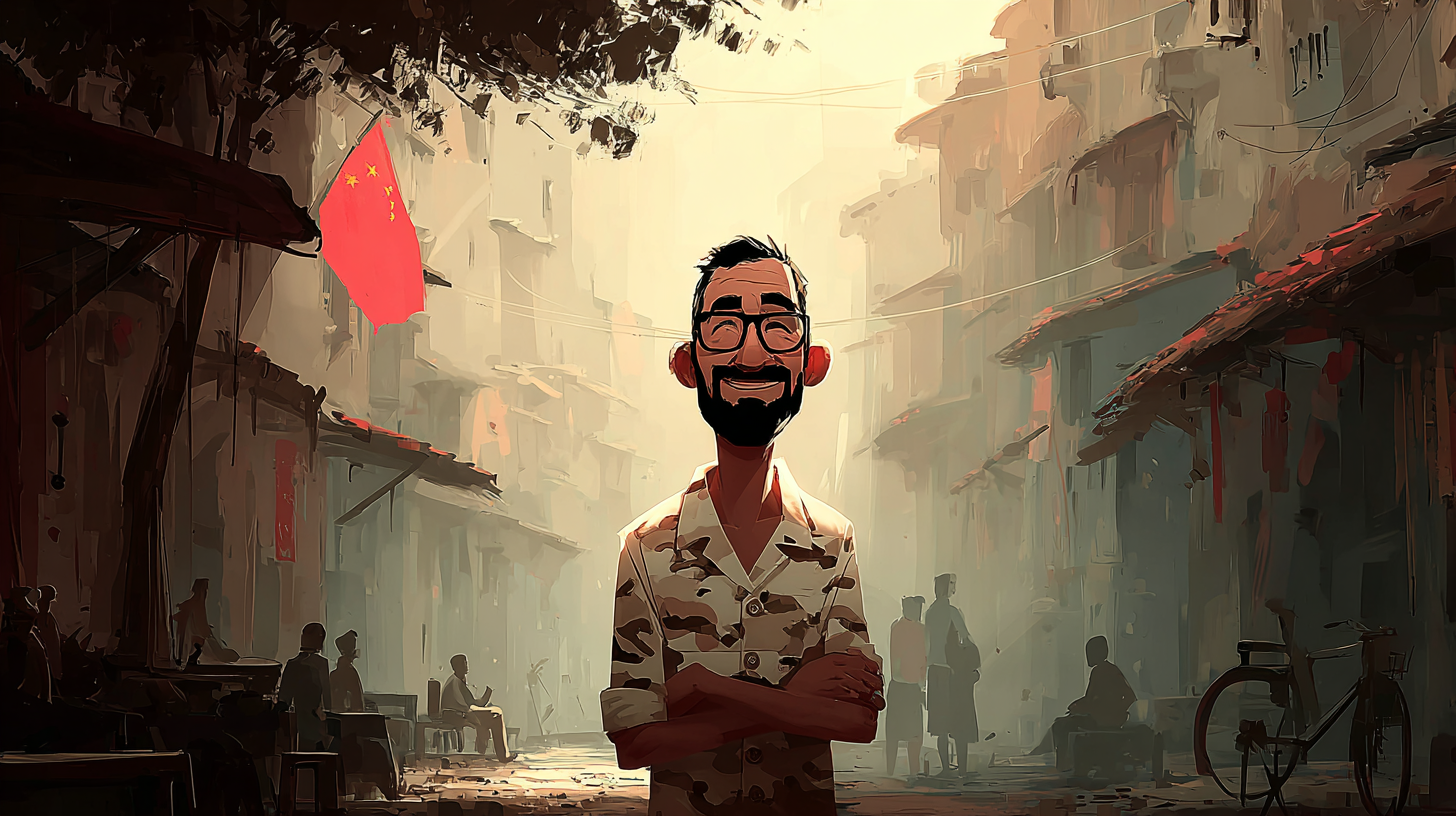civilian means “a person who is not in the army or police.”
civilian は「兵隊ではないふつうの人」のことです。
以下は英単語 “civilian” に関するストーリー型学習コンテンツです。まずは大枠の意味を理解して最後の文章で確認しましょう。
主な意味(main meaning)
| 品詞 | 定義(簡潔) | 発音記号 | 例文 |
|---|---|---|---|
| 名詞 | 軍人や警察ではない一般市民 | /səˈvɪliən/ | The area was evacuated to keep civilians safe. |
| 形容詞 | 一般市民の、民間の | /səˈvɪliən/ | He returned to civilian life after leaving the army. |
語源(etymology)
「civilian」はラテン語の civilis(市民の)に由来します。
「市民としての」や「民間の」という核イメージが基本です。
類義語(synonyms)
| 類義語 | 例文 |
|---|---|
| noncombatant | During the war, noncombatants were moved to safer areas. |
| citizen | Every citizen has the right to vote. |
| resident | The residents of the town gathered at the community center. |
| layperson | A layperson may not understand medical terms. |
| bystander | A bystander called the police when the accident happened. |
反義語(antonyms)
| 反義語 | 例文 |
|---|---|
| soldier | The soldier protected the civilians during the conflict. |
| officer | The officer told the civilians to leave the area immediately. |
コロケーション(collocations)
| コロケーション | 例文 |
|---|---|
| civilian life | After the war, he struggled to adjust to civilian life. |
| civilian casualties | The news reported several civilian casualties in the attack. |
| civilian clothes | He changed into civilian clothes after duty. |
| civilian population | Aid was sent to help the civilian population. |
| civilian authority | The military handed control back to civilian authority. |
2項表現(binomials)
| 2項表現 | 例文 |
|---|---|
| civilians and soldiers | The disaster affected both civilians and soldiers. |
| law and order | Civilian police work to maintain law and order. |
英語ストーリー(english story)
Title: A New Life Begins
After serving in the military for ten years, John finally returned home. He had been a soldier, moving from country to country, helping people in need. Now, it was time for him to begin a new chapter in civilian life.
At first, it was hard. Waking up late, wearing civilian clothes, and hearing no commands felt strange. John missed the discipline, but he was also happy to be back. He moved into a small apartment and became a resident of a quiet neighborhood.
One day, while walking to the store, John saw a car accident. A bystander shouted for help, and John rushed to assist. Though he was no longer a soldier, he still felt a duty to help. The civilian population in his town was small, and everyone knew each other. Helping others made him feel useful again.
Later that week, John applied for a job at a security company. The manager asked, “How will you adjust from being a soldier to a civilian job?”
John smiled and said, “The skills are the same. I protect people, whether I wear a uniform or not.”
The manager laughed and said, “Welcome to civilian authority!”
From that day on, John knew that even though he was a noncombatant now, he could still make a difference.
和訳
タイトル:新しい生活の始まり
10年間軍で働いたあと、ジョンはついに帰国した。彼は**兵士(soldier)**としてさまざまな国を移動し、人々を助けてきた。今は、**一般人の生活(civilian life)**を始める時だ。
最初は大変だった。朝遅く起きたり、**私服(civilian clothes)を着たり、命令の声が聞こえないことが不思議に感じた。規律が恋しかったが、帰ってこれたことがうれしかった。彼は小さなアパートに引っ越し、静かな町の住人(resident)**となった。
ある日、買い物に行く途中、車の事故を見た。**通行人(bystander)が助けを呼び、ジョンはすぐに駆けつけた。もう兵士(soldier)ではないが、人を助けたいという思いは変わらなかった。その町の市民(civilian population)**は少なく、みんなが知り合いだった。誰かを助けることで、再び自分の役割を感じることができた。
その週の後半、ジョンは警備会社に就職の申し込みをした。面接官が聞いた。「軍人から**一般の仕事(civilian job)**に変わるのは大変では?」
ジョンは笑って答えた。「やることは同じです。制服を着ていても、いなくても、人を守ります。」
面接官も笑って言った。「**市民の権限(civilian authority)**へようこそ!」
その日からジョンは、たとえ今は**非戦闘員(noncombatant)**でも、誰かの役に立てることを確信した。
Q&A
- Q“civilian” と “noncombatant” の違いは?
- A
「civilian(民間人)」は軍や警察に属していないふつうの人を指します。一方で「noncombatant(非戦闘員)」は軍にいるけれど戦わない人(たとえば軍の医師や支援スタッフ)も含まれます。つまり、「civilian」は軍の外、「noncombatant」は軍の中だけど戦わない立場です。
- Q“civilian” と “citizen” の違いは?
- A
「citizen(市民)」は国に属する人、つまり国籍を持つ人のことです。一方、「civilian」は軍人や警察官ではない人という意味です。国に属していても兵士なら「civilian」ではありませんが、「citizen」ではあります。
- Q“civilian” と “resident” の違いは?
- A
「resident(住人)」はある場所に住んでいる人のことを指します。軍人でも住んでいれば「resident」です。しかし「civilian」はその人が軍に属していないことを意味します。つまり、「resident」は場所に注目し、「civilian」は職業や立場に注目しています。
- Q“civilian” と “layperson” の違いは?
- A
「layperson(素人)」は特定の専門知識を持っていない人のことを言います。たとえば医療や法律の世界で「専門家ではない人」という意味で使われます。一方「civilian」は軍や警察の外にいるふつうの人という意味です。分野が違います。
- Q“civilian” と “bystander” の違いは?
- A
「bystander(傍観者)」は事件や事故のそばにいて、それを見ているだけの人を指します。「civilian」は軍に属していない人という意味です。どちらもふつうの人ですが、「bystander」はその人の立場や行動(その場にいて見ているだけ)に注目しています。
- Q“civilian life” と “military life” の違いは?
- A
「civilian life(民間人の生活)」はふつうの市民としての生活、「military life(軍人の生活)」は軍での規律や訓練に満ちた生活を指します。正反対の概念です。
- Q“civilian clothes” と “uniform” の違いは?
- A
「civilian clothes(私服)」はふつうの服のこと、「uniform(制服)」は軍や警察などで決まった服のことです。軍を離れた人が「civilian clothes」を着るようになります。
- Q“civilian population” と “military personnel” の違いは?
- A
「civilian population(民間人の集団)」はその地域に住むふつうの人たちを指します。「military personnel(軍人)」は軍の一員として働いている人たちです。
- Q“civilian authority” と “military authority” の違いは?
- A
「civilian authority(文民の権限)」は政府や警察などの民間の組織の指導力を指します。「military authority(軍の権限)」は軍隊による指導や命令権のことです。通常、平時は「civilian authority」が優先されます。



コメント